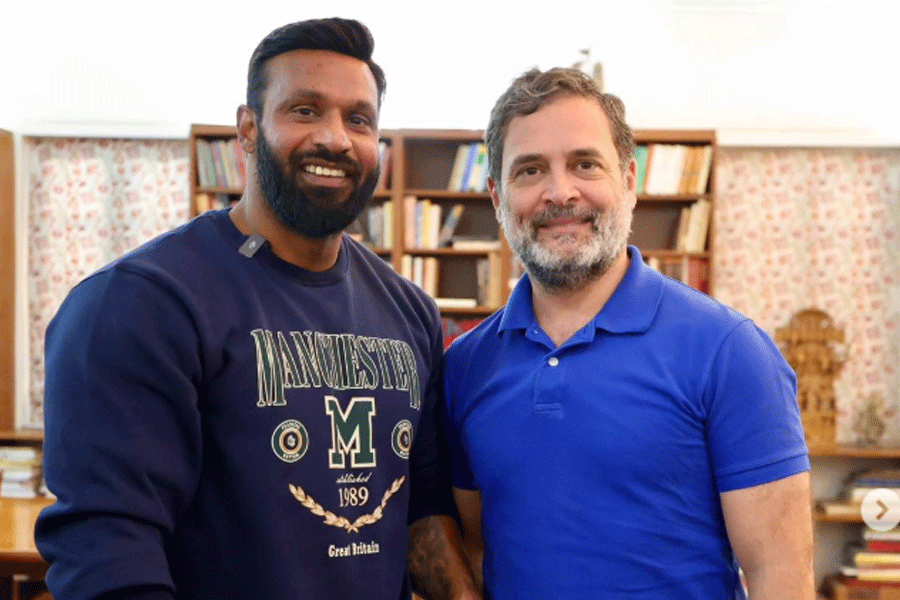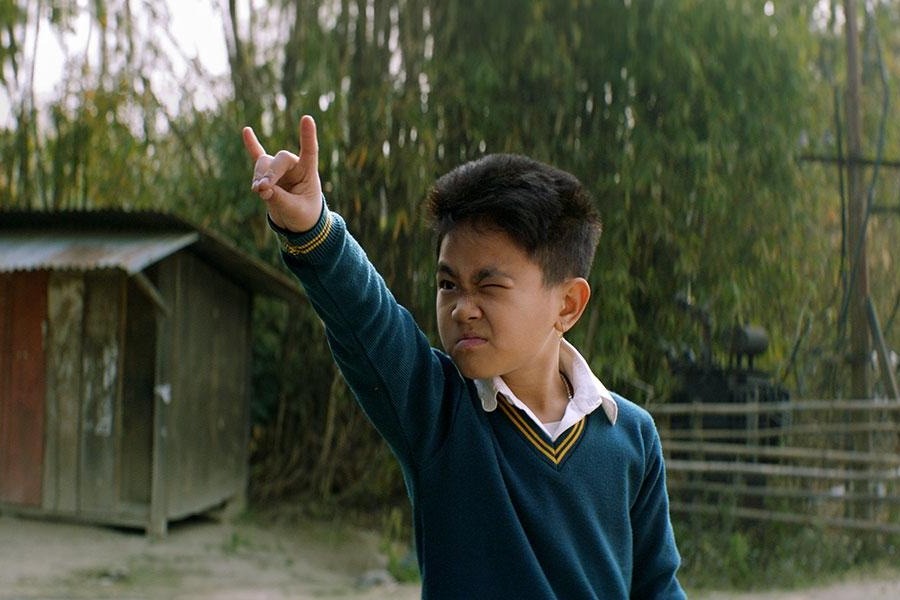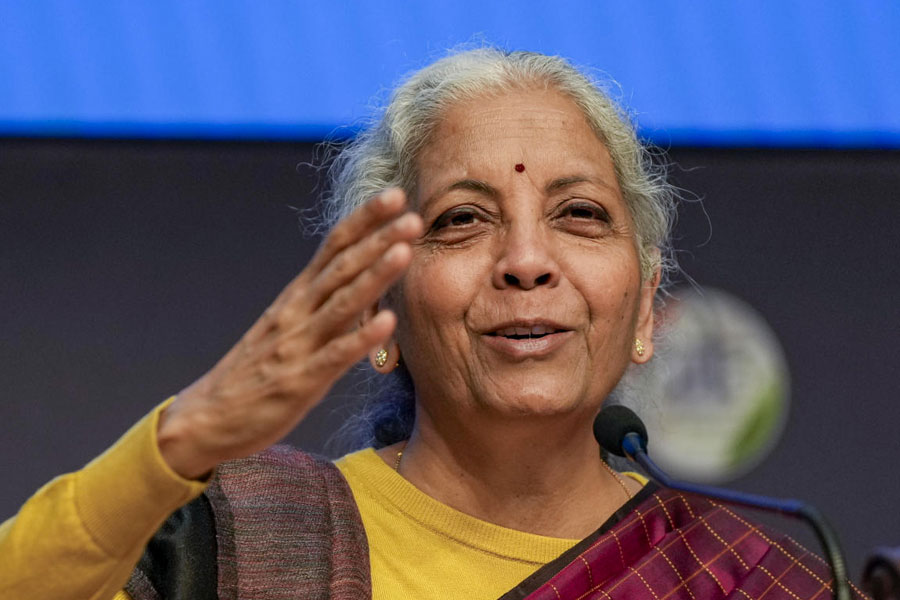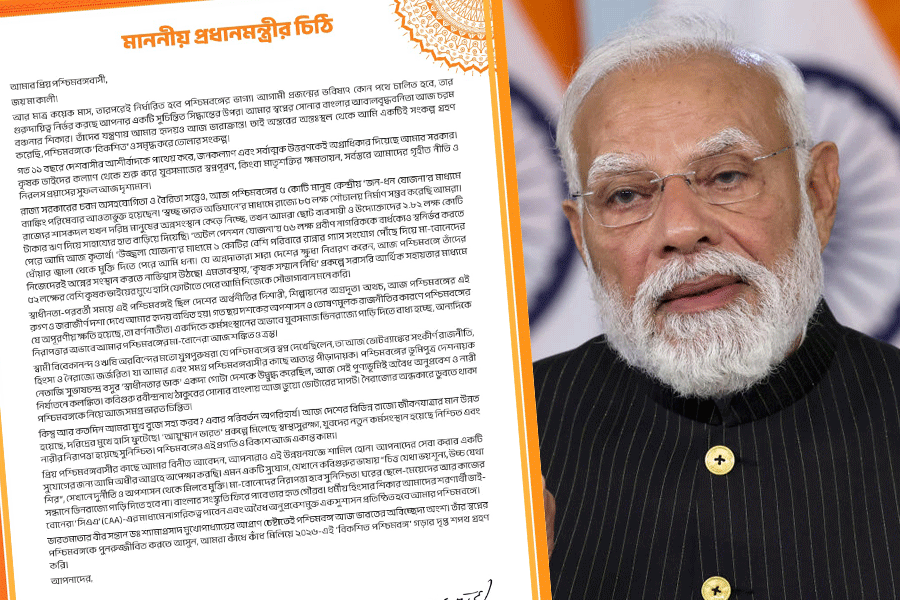 |
| Prakash Jha on the campaign trail in Bettiah |
He leaps out of the chill of his luxury saloon into the stinging heat, grabs a few farmers’ hands, cuddles a couple of unclad kids, asks if they know who he is and jumps right back in. “Look at their smiles,” he says, sweaty head cocked back, “And they all know me, even the children, this happens everywhere I go, so you know how I am doing.”
Call it confidence, call it complacency, Prakash Jha has convinced himself Bettiah is his this time. He’s averse to his poor history — in 2004, Jha barely saved his deposit, netting all of 25,000 votes, less than what losers in Assembly polls get; this is a huge leap of faith.
He’s even more resolutely averse to the ironies piled on the springboard of his leap — the very politicians and the very ways he made a name damning in his films. Gangaajal and Apaharan were both unsubtle critiques of the Lalu Prasad years — roughnecks and khadi mobsters in brutal abuse of state power. Today, Lalu sits adorned on every poster Prakash Jha prints out, his politics invoked and eulogised from every platform he climbs. Does he see the conflict in this, or has he merely compromised his conscience?
“But why?” he gruffly retorts, in between dishing out cellophaned publicity CDs to hands jostling through his car window at a village crossroads. “What I criticised through my films is what I have come to change.”
 |
| Lalu Prasad and Rabri Devi on Prakash Jha’s posters at his campaign headquarters in Bettiah |
We are lurching along rural Champaran — through impoverished hamlets locked in vast stretches of subsistence farmlands singed in the sun — in a formidable formation of black SUVs that has left its trail bombarded with dust.
The many wares of Prakash Jha Inc. are in full play over the megaphones mounted at the back of the caravan — a cacophony of jingles and parodies on Bollywood hits; one of them has been purloined from Muzaffar Ali’s Umrao Jaan and twisted into an electoral entreaty — “Prakash Jha ka vote is baar thaan leejiye, bas ek baar mera kaha maan leejiye (Decide to vote Prakash Jha this time, if only for once, listen to me this time).”
But blaring above all of that is an insistent ring whose incongruity Jha cannot escape beyond a point — “LaloooooYaaadav zindabad! Raaabri Deviiii, zindabad!”
The satire of it all — the disjunct between his work as filmmaker and his worship as politician — resonates enough for him to turn around and make reluctant admissions. “Of course this is happening because of what happened after I made Gangaajal,” he says. “I was convinced I had to intervene. Politics has become cynically caste-based and hugely criminal, someone has to try and change that. But you also need a platform, an organisation, politics is one thing, winning elections quite another.”
His current company reflects poorly on the squeaky-clean, work-oriented ethic Jha is seeking to foreground, but he has chosen that over the poverty of votes. He won’t say it in as many words, but he has swallowed the bitter lessons of 2004 — cinema and celebrity aren’t nearly enough. And good intentions need a vehicle to ride. Jha is unabashed about opting for Ram Vilas Paswan’s LJP — “He is a decent man with a small party. His politics is correct and he respects you, what’s wrong with getting good help?” On Lalu Prasad, who he has famously caricatured in his cinema, Jha prefers a tempered silence. “My objective is work, in getting there you don’t get to choose everything.” So he must rest easy with Lalu Prasad crowned on his posters and Lalu Prasad littered through his message.
Truth to tell — and Jha gets more acutely aware of this each passing day — his campaign will need Lalu Prasad dearly: Sadhu has arrived in the fray. He’s only a rebel and an outsider in Bettiah bearing the card of a moribund Congress, but don’t forget this is Bihar and don’t forget Sadhu is a Yadav. And what caste allegiance will not get him, his dirty tricks department, imported in thousands from his neighbouring Gopalganj homestead, will.
“People are very sensitive in these parts,” says Manish Kumar, one of Sadhu’s poll managers with a mischievous smirk. “All the villains in Prakash Jha’s films have been either Yadavs or Thakurs or Muslims, do you think they will not remember?” The whisper is already travelling across Bettiah’s sunburnt bush — Jha is no do-gooder son of the soil, he’s a “maaldaar Bambaiyya” (rich Bombay man) who has made a career out of lampooning Biharis and their ways.
At Jha’s election offices on the outskirts of Bettiah — an elaborate bamboo town crafted by one of his set-makers — they are trying to keep his films and filmdom as out of focus as possible.
Jha has consciously kept out the stars from his campaign, his people have been strictly tasked to keep the talk to Bettiah. There is, at the back of the bamboo town, an Obama-style bay of mobile callers, busy burning the phones eighteen hours a day — young boys and girls running through long cellphone directories.
They do have much to talk about. Since his defeat in 2004, Jha has invested deeply and consistently in Bettiah. The district hospital, once a rancid hollow overrun by dogs and goats, has been slowly restored to shape and function, a sugar mill is fast coming up to relieve the graveyard of British-era mills that Bettiah is, help from Jha’s local trusts has been at hand during yearly flash floods and food shortages.
There’s little to deny in any of that. Even adversaries would tell you, although they attack biting riders. “Kaam to hua hai,” says Bala Rai, a Sadhu supporter in the Nautan block. “Lekin unka paas bahut paisa hai, ka jaane kahan se laaate hain (work has been done but he is a rich man, don’t know where he gets this money from).”
On his part, Jha talks work and more work, eschewing overt references to allegiance to caste or creed. “This is what I want to change,” he says, as we roll along to the next stop. “I want to use my resources and contacts to build here, to create local wealth through new farming and through better exploitation of technology — mills, better seeds, fertilisers, that is what we need, not this caste or that. It is work that will help people, nothing else.”
He knows, though, at the bottom of his conviction of victory, that he may be arguing ahead of time, that it will take very little to unwork all his talk of work. Sadhu Yadav knows it equally well — a good chunk of the Yadav vote grabbed, a little erosion in the Muslim vote effected and Prakash Jha could crumble into the caste crevice. He’s hard at the dig.
Each Sadhu stroke is music to the BJP’s Sanjay Jaiswal. Son of a former Bettiah MP, owner of a huge pharma and pathology empire, new boss of a solid caste-Hindu and lower backward votebank, Jaiswal will be the man laughing at the crest of that crevice. And Jha will be left to clamber back from the depths yet again.
Paschim Champaran goes to the polls on April 23











